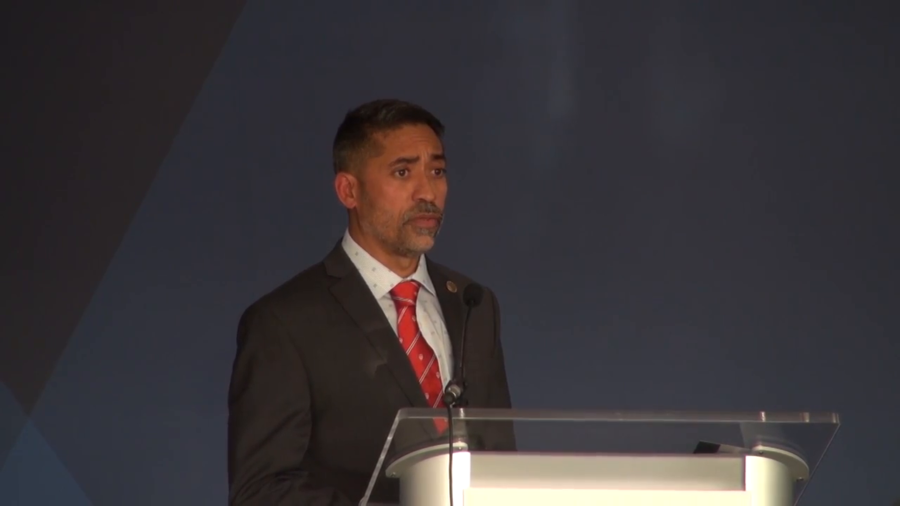Alan Emtage: I would like to thank the Internet Society. I am honored and humbled by this honor. I am told by the secretariat that I am the first Barbadian and the first person from the Caribbean to be an inductee into the Hall of Fame, so I’m proud of that. As I look across the assembled crowd here tonight it’s gratifying to see how diverse this is particularly, and how that has changed over the last thirty years.
There are a couple of things I’d just like to say. The Internet nowadays people think of as being this incredibly competitive and commercial market. For those of us who worked on it thirty years ago, and for whom commercial activity was actually forbidden, this is quite a change. And while the spirit of altruism still continues to exist on the Internet (much of the Internet works on open source software which is contributed freely by programmers and engineers across the world), that spirit of altruism started very early on. And it is… Well, without blowing my own horn, the Internet as we know it today wouldn’t exist were it not for the fact that a lot of the organizations and individuals who worked on it back then freely allowed the fruit of their work to be distributed for free.
So, CERN owned the World Wide Web, released that software into the public domain. That was Tim Berners-Lee. Brewster Kahle did a similar thing at Thinking Machines and WAIS. Mark McCahill and Gopher. And ourselves, we… I’ll read a little story here. I had a conversation with Vint Cerf probably thirty years ago. And he jokingly said to me, “Why don’t you patent the techniques that you’re using in Archie for the search engine?”
And we thought about it. We thought about it long and hard and we decided that to do so would sort of strangle the baby in the crib. That it would restrict the ability of people to use what we had learned and to expand on it. So, the primary question I get is why am I not a billionaire. And I’m quite happy not to be a billionaire. That’s fine with me. But it was done in the spirit of cooperation and realizing that while we were working on something that was big and was going to change the world. I don’t think anybody back then really knew how much it was going to change and how profound a change it was going to be.
Two people I’d like to mention here, and thank for me being here. One is my business partner back then, my boss and business partner was Peter Deutsch, who did a lot of work to bring Archie into the wider world. And somebody else that a lot of the old-timers here will remember and who was instrumental in what we call the user services layer of the Internet when I first got to the IETF back in 1991. It was just—it was a lot of engineers and there wasn’t a lot of attention paid to the users. And the person would be Joyce Reynolds. Joyce Reynolds, who is unfortunately no longer with us, worked hand in hand with Jon Postel and really nurtured the user services group in the IETF. And she has a huge hand in the Internet that we know and love today. So I really would like to acknowledge her. So thank you. I’m most honored.
